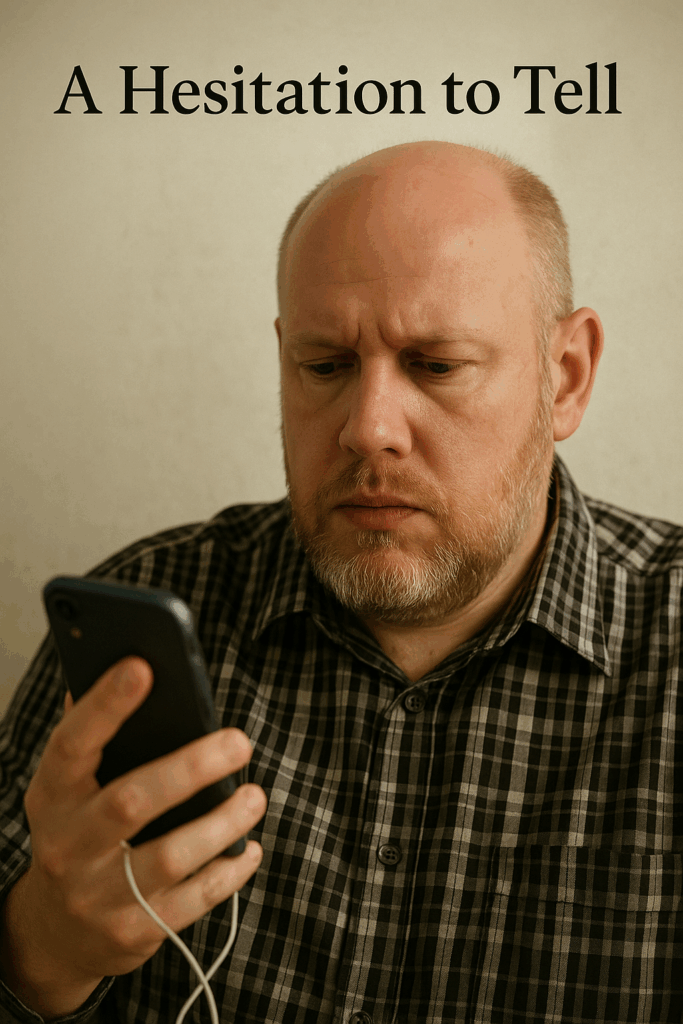
So, today—sunny, surprisingly smooth Monday, May 19th. I was deep in thought, working from home, when the doorbell rang. That classic distraction moment. I figured it was a package—my wife orders half our household through the internet—but instead, I stepped into an unexpected scene: neighbors outside, murmurs, movement.
A scooter had just crashed into my parked car.
Turns out, the rider lives around the corner. Never met her. She1 took a wide right turn—our street does this awkward 90-degree bend, more like a loop really—and ended up losing control. Nosebleed, scrapes, shock, and all. My car? Just a casualty. But her state of mind? That hit me harder.
She kept saying, “Sorry, I didn’t do it on purpose.” It struck me—this almost compulsive repetition, like she needed to convince herself just as much as me. Maybe it was guilt, maybe shock, or maybe just the fragile human instinct to make sense of something senseless. It was raw. Honest. A little heartbreaking. As if anyone intentionally crashes into a car to kickstart their Monday.
Of course, the human thing to do is ask, “Are you okay?” And we did that, all of us. The community came together in that unspoken Dutch way—hands in pockets, nods, quiet solidarity. It wasn’t life-threatening. But it was a wake-up call. For her, sure—but maybe also for me.

Here’s the backstory—the one I’m hesitant to post. Not because it’s salacious, but because I genuinely don’t want her to get into more trouble. She admitted it herself: she was fiddling with her phone.
Trying to switch music.
The earbuds weren’t syncing right,
so she glanced down.
Just for a moment.
But that’s all it takes, isn’t it?
If the police had witnessed it, that tiny act could’ve meant a hefty fine. And though I believe in accountability, I also believe in mercy. Accidents like these are reminders more than crimes, and I hope that’s how it ends.
Context is everything.
From Crashes to Context
And speaking of context—this is where my mind zipped off in a different direction entirely. Back to Friday’s “Forgetful Day” entry. And yesterday’s post about AI amulets. These tiny devices you wear like a necklace, quietly recording your life. Your thoughts, your conversations. Always listening. Supposedly helpful. Possibly creepy. But undeniably contextual.
If she had an AI pendant, maybe it would’ve reminded her: not now. Maybe it would’ve known she was approaching a sharp turn. Maybe it would’ve said, “Eyes on the road.” But maybe that’s wishful techno-magic. Or maybe it’s a glimpse.
Because here’s the paradox I keep chewing on: we want AI to help us remember, keep us safe, make us better. But we don’t want to depend on it. Or trust it blindly. Especially when most of these tools are built by Big Tech gods with their own agendas.

Two hundred bucks for the device, then a subscription. Of course. Everything’s a subscription now. Netflix, Spotify, memory itself.
Why Glasses Might Be Smarter
But what got me thinking wasn’t the price. It was how limited it is compared to something I already own—my smart glasses. They have audio, GPS, a camera. So why can’t they do what the amulet does, but better? Why isn’t there an audio-only mode? Why can’t I wear them all day and get true life logging?
Because that’s the game, right? Not just data, but multimodal context. Meaning: not just your voice, but also where you are, what you’re seeing, what time it is, even what’s on your face or in your tone. That layered understanding—the blend of audio, visual, spatial cues—is what makes the difference between generic output and something genuinely helpful. That’s where AI stops being a toy and becomes more than a tool.
And yet… I hesitate. Because the same AI that helps you be a better manager by replaying a dumb comment from 09:11 AM could also get your account suspended. Or your thoughts harvested. Or your mistakes permanently archived. That’s the Black Mirror edge of it all.
Patterns, People, and the Price of Memory
So I sit here, on my way to pick up Nadia from school, and I watch someone cross the street who looks eerily like Einstein3.

Or maybe it’s just my brain looking for patterns again. That’s what it does.
I wasn’t going to write today. Nothing worth sharing, I thought. But then real life happened. A crash. A confession. And in that moment of chaos and clarity, I was reminded why I keep circling back to memory—how fragile it is, how tech might help hold it, and how human it still feels to just forget. A cascade of thoughts about AI, memory, and the price of forgetting.
And somehow, in all that noise, I found a little signal.
What's on your mind?